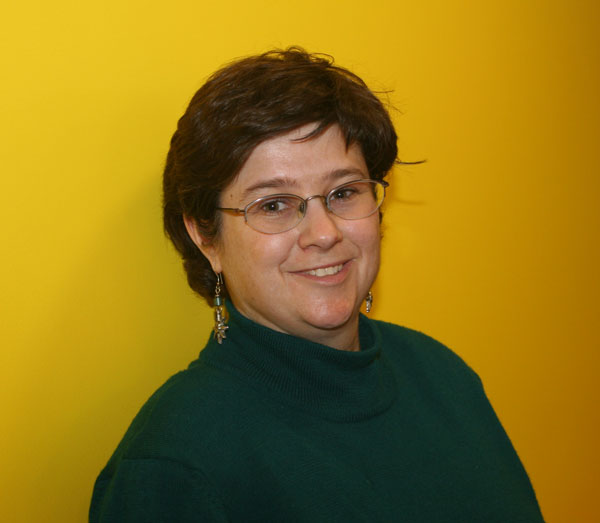My Definition of Autism
April is Autism Awareness Month and The Arc and Autism NOW are taking this opportunity to ask individuals who identify as being on the autism spectrum to answer this question: “What is your definition of autism?” Amy Goodman is co-director of Autism NOW and an individual on the spectrum. Below is her personal definition of autism. Follow the conversation this month online using #autismaware.
Being an individual on the autism spectrum means that I have a diagnosis of autism. So what? It doesn’t matter in the long run because it does not define who I am or what I can or cannot do. First and foremost, I am Amy, an individual who happens to have a diagnosis of autism. I don’t let it get in my way of anything. It does not present any challenges for me and if it does, I work to overcome those challenges by finding a way to jump through the hurdle and succeed at everything I do or try.
For me, it has been a positive experience finding out that I was on the spectrum. I have embraced it and used it to my advantage. It opened a lot of doors that otherwise would have stayed closed. I was able to move forward with my life when I found out. I went to Graduate school and chose the path that was best for me. It helped me to focus on what I wanted to do with my life.
Knowing I was on the spectrum, and knowing that I could be a success has helped me to jump the biggest hurdle of all, obtaining and keeping a job in the autism field. The opportunities have been endless and by embracing my autism, I have grown as an adult. I finally found what I had been looking for more than 30 years – an answer to what direction I should go, and where I fit in in this world.
Explaining to someone not on the spectrum is very difficult. They just don’t seem to understand why I do what I do. They are always being pessimistic and saying that there is nothing wrong with me, which in this case is true. There is nothing wrong with me. It’s the attitude of others that only see the glass as half empty and that I’m not capable of doing anything at all. That is something that needs to be fixed. Me? I’m the optimist. Don’t fix what isn’t broken. Fine tune it. If someone is on the spectrum, utilize their abilities and accommodate their needs, don’t question them. Work with them to maximize their brain capacity. See the situation through their eyes. Give them a chance to excel and most of all treat them with respect and dignity.
We may not be the most social of beings, but we certainly can learn and grow from our mistakes. Just remember there is more than one way to skin a cat, so explaining what it’s like living with autism is different for everyone on the spectrum. I don’t need to explain anything because I’m perfect the way I am. If I don’t like something I avoid it. If it hurts my ears, I wear earplugs or noise canceling headphones. There is a solution for every problem, one just has to do what is best for them and not worry about what others think.
Autism is part of me, so it should not define me or need explaining at all. Not everyone can pass as “normal” or “neurotypical” but who wants to be like them anyway? I am who I am and there is no changing me. Accept me for who I am and you will see autism in a whole new light.


 By Amy Goodman, Co-Director,
By Amy Goodman, Co-Director, 





